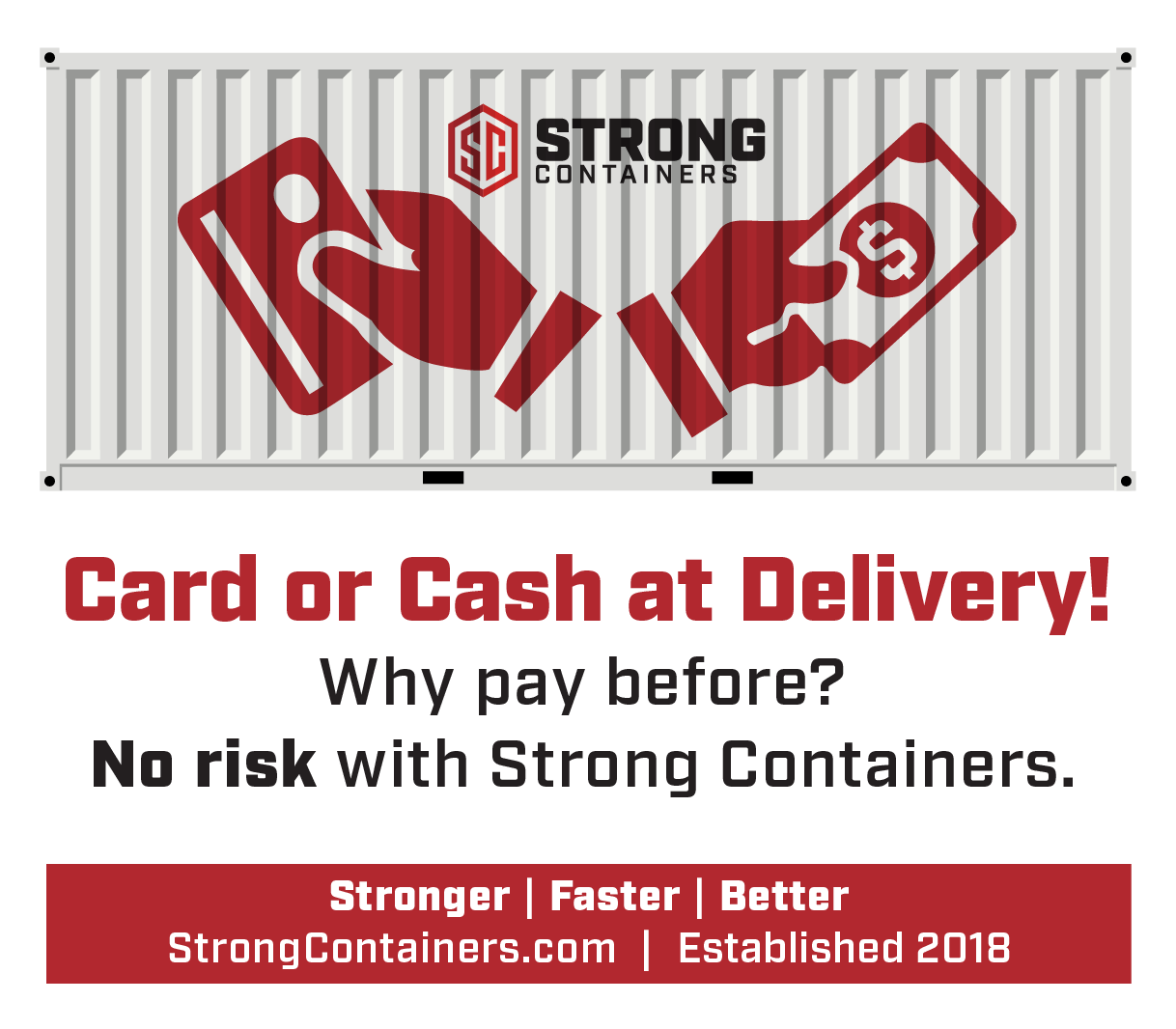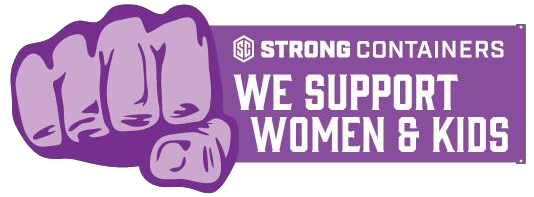Shipping Container Supplier, LLC
Est. 2018
Why Pay After Delivery (Cash or Card)?
Buyer Protection and Peace of Mind
- Inspect Before Paying: One of the biggest benefits of paying after delivery is the ability to inspect the goods before handing over any money. This gives you confidence that the product you ordered is exactly what you expected—whether it’s the right model, size, color, or in good condition. If the product is defective, damaged, or doesn't match the description, you have the option to refuse payment or even return the item right then.
- No Risk of Scams: If you’re buying from a new or lesser-known vendor, paying after delivery provides an added layer of security. If you’re unsure about the legitimacy of the company or the quality of their products, paying after the delivery lets you verify the purchase first before you part with any money. You’re not taking the risk of paying upfront for something that might never arrive or that’s of subpar quality.
- Last-Minute Decisions: With cash on delivery (COD), you have the flexibility to make last-minute decisions about whether or not to proceed with the payment. If you’ve changed your mind or realized the product isn't what you wanted, you can simply refuse the item and not pay.
- Resolve Issues Immediately: If there’s an issue with the product upon delivery (for example, it’s damaged, or it's not the correct item), you have more leverage to resolve the problem. Since you haven’t paid yet, you can discuss a replacement, exchange, or return before committing any funds.
Convenience for People Who Don’t Use Cards
-
Cash as a Payment Option: Not everyone has access to a debit or credit card, especially in certain regions or for people who prefer not to use online payment methods. Paying after delivery with cash provides an alternative for these customers. They can still enjoy the convenience of delivery without needing to use a digital or card payment.
-
Preference for Physical Money: Some people simply prefer using cash for budgeting reasons or because it feels more secure or tangible than digital payments. COD allows them to pay exactly what they owe at the moment, which can help with budgeting or avoiding debt associated with credit cards.
No Need to Trust Digital Payments
Privacy and Security Concerns: Some individuals may be hesitant to share their card details online due to concerns over fraud, identity theft, or privacy breaches. With cash on delivery or paying by card at delivery, customers can avoid sharing sensitive financial details online or over the phone, which adds a layer of security and privacy.
Avoiding Unwanted Charges: When you pay after delivery, there’s no chance of any unexpected or hidden charges showing up. Some people worry about overcharges or hidden fees when making a prepayment, and paying upon delivery eliminates this concern since you can verify exactly how much you’re paying before the transaction is finalized.
Budget Flexibility
Control Over Cash Flow: For people who prefer to keep close track of their finances, paying after delivery offers more control over their budget. You’re not tying up money in a prepayment months before the item arrives—you only pay when the item is delivered, which might work better for certain budgeting strategies.
No Precommitment: Sometimes, people might not be sure about whether they’ll have enough funds at the time of ordering, or they might want to make sure they have enough money available at the time of delivery. Paying after delivery lets them avoid committing money upfront, which can be useful for temporary cash flow issues.
Greater Flexibility for Returns or Issues
Immediate Dispute Resolution: If the item isn’t right, it’s easier to address the issue right when the delivery person arrives. You can refuse the item or address the problem immediately without having already made the payment. In contrast, if you pay upfront, you might face difficulties when trying to return the item or get a refund, especially if the delivery company doesn’t offer great customer service.
More Leverage for Complaints: If there’s an issue with the delivery, whether it's the wrong item or a damaged good, paying after delivery gives you more leverage. You can insist that the issue is resolved to your satisfaction before you part with any money, and many delivery services will be more motivated to correct mistakes when they know payment hasn’t been finalized yet.
Benefits of Paying After Delivery for Sellers:
While paying after delivery tends to favor buyers in terms of security and flexibility, some sellers also benefit from offering this option, depending on their business model:
Appealing to Customers: Offering COD or card on delivery is a customer-friendly option that can attract buyers who prefer the added peace of mind it provides. It can be a compelling choice in competitive markets where companies want to build trust with customers.
Building Trust: Sellers may use the "pay after delivery" option as a way to build rapport and trust with first-time customers. If a business is new or doesn't have a long track record, allowing customers to pay only after receiving the product can help encourage more sales by reducing perceived risks.
Higher Conversion Rates: For some customers, the ability to pay at delivery might be the deciding factor in making a purchase. This can lead to higher conversion rates, especially in regions where cash is still the dominant form of payment or where there’s skepticism around online payments.





